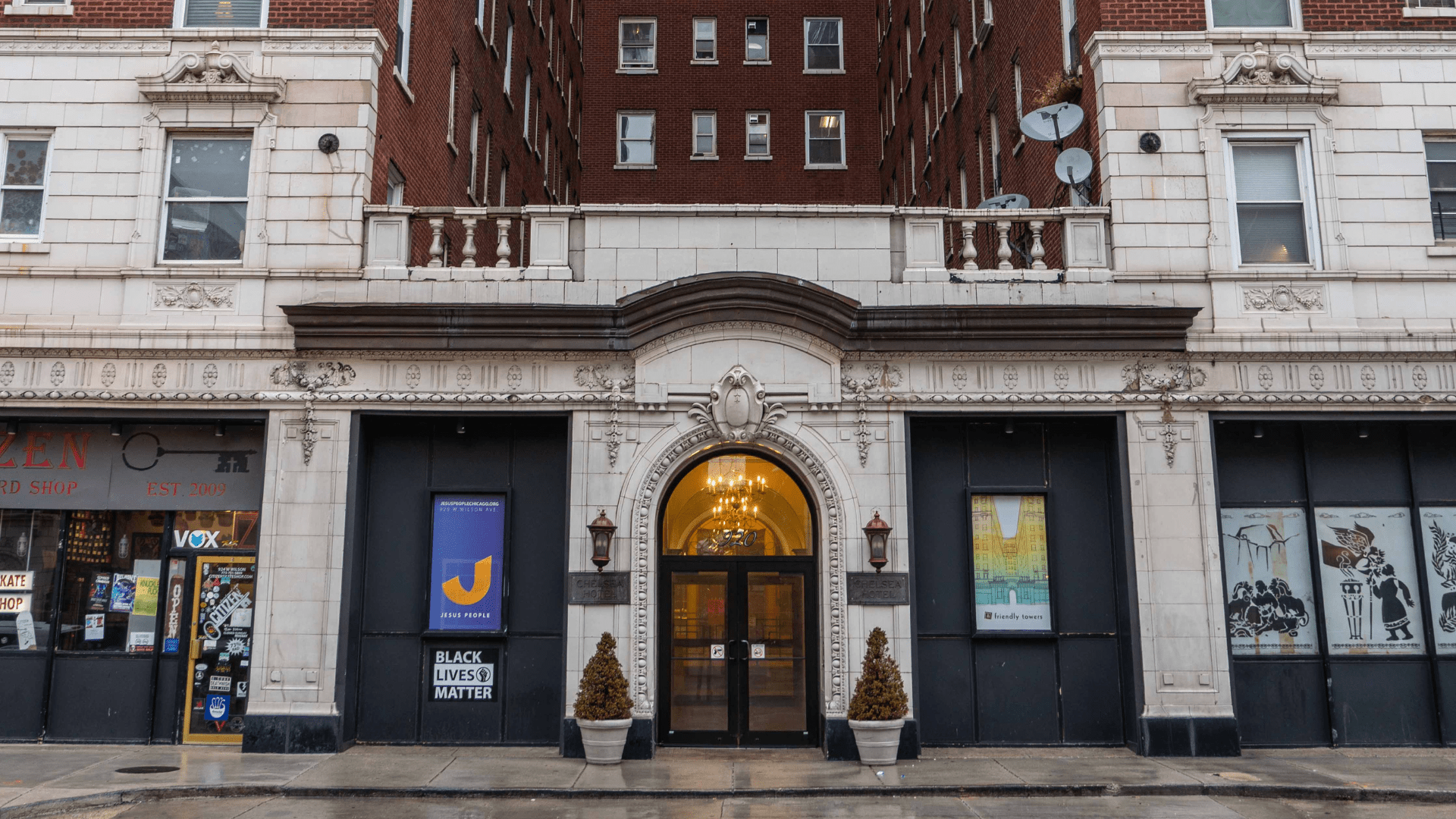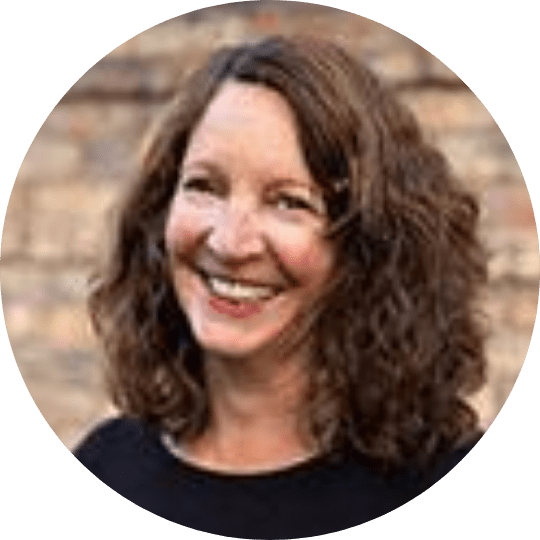Photos by Karl Clifton-Soderstrom
An Intentional Journey Toward Healing at Jesus People
David Denson was recounting an alarming telephone exchange with his parole agent, Mr. Alexander, who had questions about Denson’s housing.
“When I call the main number, why don’t the people at the desk know you?” Alexander asked.
“They might not know my name,” Denson replied. “There’s 150 people living in this 10-story building. But they’d recognize me.”
“So you live in the building?”
“No, I live next door.”
“Then what’s your address?”
“It’s the same address—both buildings are part of Jesus People USA.”
Denson imitates the agent’s skeptical silence with a wry look.
I’m meeting Denson for the first time at the Golden House Restaurant and Pancake House on a wintry day in Uptown, Chicago. Andrea Spicer, a pastor at Jesus People Covenant Church, picks up the story’s thread. “I happened to walk by and noticed that something seemed to be going on. David quickly handed me his phone and said, ‘Can you talk to my parole agent?’”
When she took the phone, she introduced herself uncharacteristically: “This is Reverend Spicer.” (“I never say that!” she confides.)
Suddenly the officer’s tone changed, the tension diffused. “He started sharing his thoughts on religion and how he’d never seen a church step up with a returning citizen in ways that genuinely helped,” Spicer says.
At the time, Denson had been at Jesus People’s intentional living community for two months. After being incarcerated for 38 years, he was granted parole on October 29, 2021, from Stateville Correctional Center. He was 57.
At Stateville he had enrolled in the School of Restorative Arts, the unique degree program through North Park Theological Seminary that prepares “inside” and “outside” students for ministries of restoration in contexts that are susceptible to violence.
“Each of us is more than the worst thing we’ve ever done….If someone tells a lie, that person is not just a liar. If you take something that doesn’t belong to you, you are not just a thief. Even if you kill someone, you’re not just a killer…. Embracing our brokenness creates a need and a desire for mercy and perhaps a corresponding need to show mercy.” — Bryan Stevenson, Just Mercy
Upon his release, Denson moved in with a family member in Waukegan, north of Chicago. But after a few weeks, he realized he needed a place where he could live on his own. He called North Park and asked for help. They connected him with Jesus People.
When Denson first met with Spicer, who was also an SRA student, and Teel Short, another member of Jesus People, he told them, “Thank you for taking a chance on me.”
They responded, “Thank you for taking a chance on us.”
“I was thinking, ‘Oh, you have no idea,’” Spicer says.
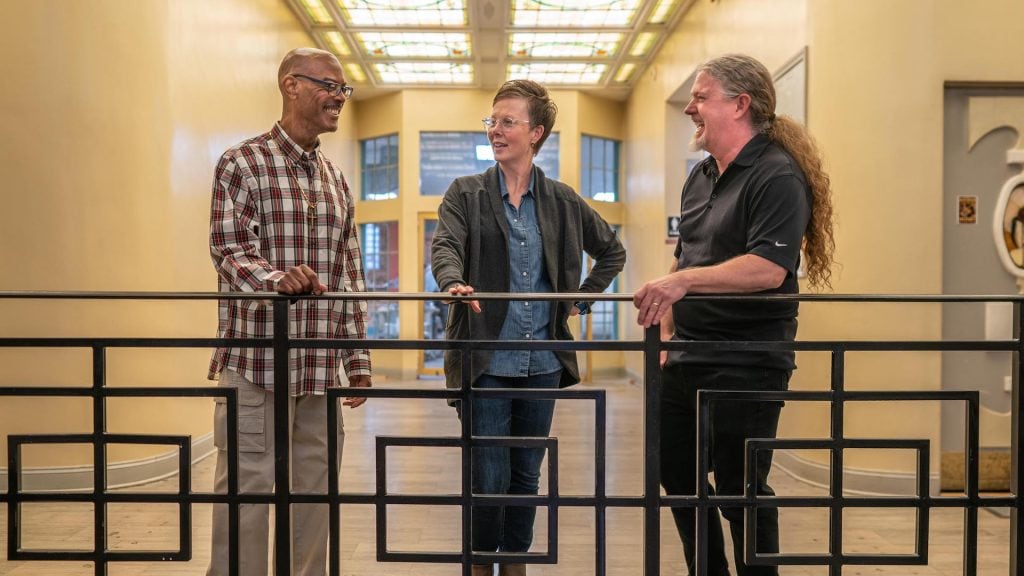
David Denson, Andrea Spicer, and Tom Crozier
Jesus People has undergone its own painful journey of brokenness, truth-telling, and reconciliation.
The community was formed in the early 1970s at the height of the national Jesus People movement, emerging from streams of 1960s-era religious awakenings and countercultural questioning of the white middle-class American status quo.
The story goes that early members of Jesus People USA were traveling to one of their street evangelism rallies when their bus broke down in Chicago. In reality, the bus often broke down, and after a year on the road, they ended up in the Midwest where they decided to set up a base in Chicago. It was 1972.
Their first home was a church on the north side of the city, mostly in the basement (though the men slept upstairs in the sanctuary). Members were primarily in their early 20s and single. Over time, community members married and had children, and new families joined. By the 1980s, hundreds of people were living together in Uptown, where they had purchased several buildings. Around 500 members moved to a large hotel building in the early 1990s.
Jesus People USA developed a range of businesses and ministries. Resurrection Band, led by pastor Glenn Kaiser, was a pioneer of Christian rock. Their street paper, Cornerstone, evolved into a magazine and spun off a huge annual music and arts gathering, Cornerstone Festival, drawing crowds of up to 20,000 for 28 years. Cornerstone Community Outreach began as an ad hoc soup kitchen and emergency housing for neighbors, eventually growing into one of the largest shelters for people experiencing housing instability in Chicago. In 2021, they served 122,193 meals to shelter guests and others in need. Everybody’s Coffee opened in 2014, selling fair and direct trade coffee, including Karawa Coffee grown in the Democratic Republic of Congo by Paul Carlson Partners.
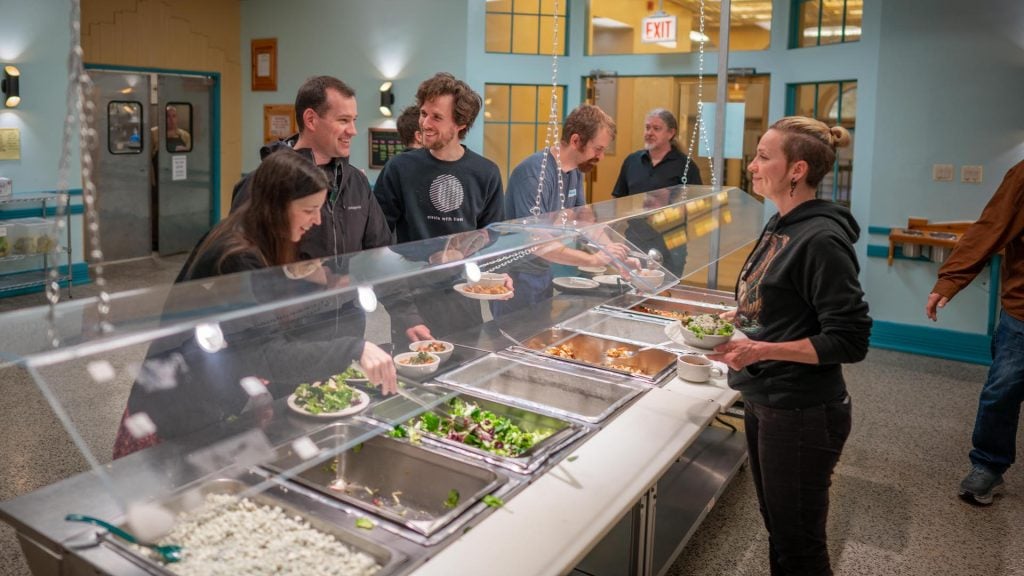
From the earliest days, Jesus People welcomed everyone. “Something in our DNA is willing to give people chances,” Spicer says.
But that wasn’t always wise. Allegations of sex abuse between children were reported. Additional allegations were made against adults at Jesus People. In 2014, former community member Jaime Prater released a 90-minute documentary in which he and other former members allege multiple cases of sexual abuse of children at Jesus People.
Two negligence lawsuits were filed against Jesus People and the Evangelical Covenant Church, and 19 additional claimants stated that they had been sexually abused as children while living there.
The allegations were devastating. “We were shocked and dismayed,” says Spicer. “We take any allegations of childhood sexual abuse very seriously.”
Jesus People began implementing clearer child safety policies the following year. All legal claims were settled by December 2019. No members of the leadership team currently at Jesus People have been accused of sexual abuse.
Now the 185 members of the community are pursuing healing and truth. They acknowledge that their initial disbelief led to defensiveness—and they did not listen to the survivors with compassion. Recognizing that failure, they are working to face their history intentionally and methodically while acknowledging that harm was done.
And they are seeking to ensure that any instances of abuse are recognized, validated, and investigated. A team is tasked with informing outside authorities, collaborating with outside investigators, and taking necessary steps to ensure the safety of all vulnerable people in their midst. They have created processes to address any historical claims of abuse (at least 15 years old where the victim is now an adult), which include reporting claims to the police and involving outside investigators.
Jesus People’s history and reckoning with known abuses has made for deep institutional changes to center safety and care for anyone experiencing harm or abuse while living in the community.
I say, “I’m with Jesus People.” Everybody in the area knows them. It’s so awesome. They’re beautiful.
They are also taking care with current community members. Throughout the past year they have named and faced difficult truths. Working with an outside mediator, Jesus People leadership surveyed its members, asking how they are thinking about the community and how they are responding to the allegations. Questions reached beyond childhood sexual abuse to include feedback about other potential harms or abuses. They asked explicitly, “Have you been harmed by the leadership team? Have you harmed anyone? Do you want to be part of the reconciliation process now? What do you need?”
It is messy work.
“Restorative justice brings everyone into the conversation,” Spicer explains. “Rather than it just being the leadership making decisions about how we moved forward, we wanted to include everyone in the communication process in real ways, drawing people into this really hard work. We wanted everyone to be able to express themselves through a variety of venues.”
Throughout the past year, the community held several gatherings where they worshiped together, shared devotional reflections, and told stories of what they hoped for in the coming season of reconciliation. They are working on a public statement summing up what has happened, as well as an invitation to any survivors who want to contact them.
“We don’t have any rainbows-and-unicorns-and-we’ll-all-get-along expectations for this process,” Spicer says. “We have no control of the outcome. But we can decide to adopt an open posture that at least offers opportunities for reconciliation. We want anyone who wants to be heard to know that we are here, and they are welcome to bring us their hurts and their story.”
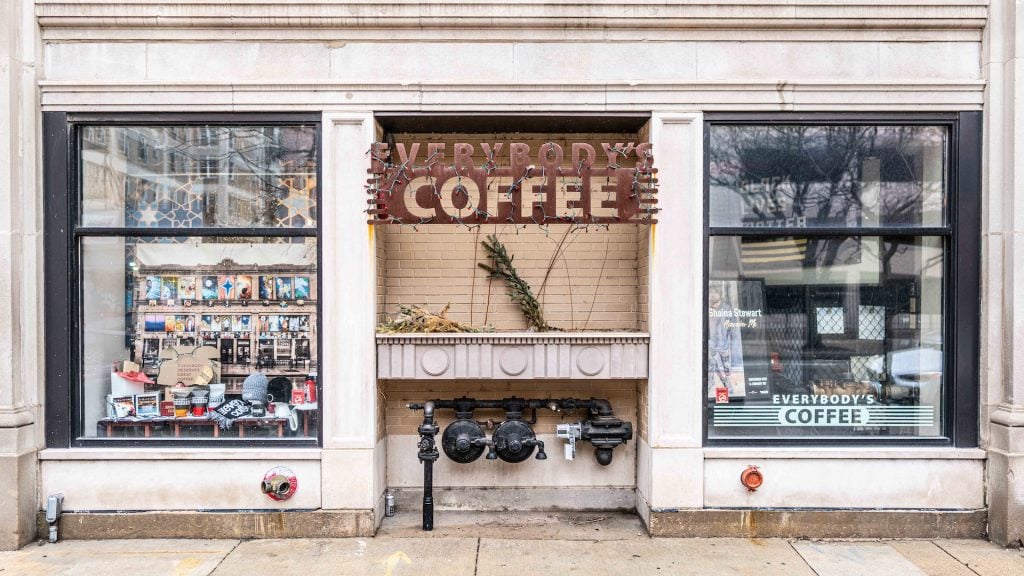
It was in the midst of this difficult, complicated season that Spicer shared her idea for opening their space to house returning School of Restorative Arts students. The first question many members asked was, “Would we house any sex offenders?”
The answer was no. Spicer explains, “There are ministries and people who can take care of those folks, and that’s important. We can trust that God’s got things for everybody. But we can’t be those people.”
Then someone asked, “What about someone who has murdered someone?”
Spicer responded, “Well, Stateville is a maximum-security prison, so probably.”
But they would only receive students enrolled in the School of Restorative Arts, which has its own extensive vetting process.
A yearlong communal discernment process began.
“Before the pandemic shut us down, I had only attended class inside Stateville eight times,” Spicer says. “But that’s why I felt like I could be bold. If being in that space with those guys for just eight weeks could transform me, then this was important. As the church, this is what we’re called to do, right?”
When Denson describes life at Jesus People, he repeatedly uses the word “beautiful.” “When people in the area ask where I’m from, I say, ‘I’m with Jesus People.’ Everybody in the area knows them. It’s so awesome. They’re beautiful. They got a good name for themselves. That means a lot to me to be tied to that. I do say it a lot, but it is beautiful.”
One day Denson had an appointment to get a Social Security card, which he needed in order to find work. Community member Tom Crozier drove him to the appointment and planned to return when he was done.
But Denson couldn’t get in the door. “My appointment was at 9. I got there at 9 and knocked. The security guard looked up and saw me but did nothing. Maybe he just saw this Black man standing there,” he said.
He returned to the car and told Crozier he’d wait a couple of minutes—maybe the office just wasn’t open yet. But Crozier was having none of that. He jumped out of the car and knocked on the door, wearing baggy shorts in the Chicago winter and his long hair in a ponytail.
“That guard jumped up, asking how he could help, and showed me where to go,” Denson says, still marveling at the altered response. “I needed Tom’s help!”
Such personal connections helped Denson thrive as he began a new chapter. “I’ve been locked up 38 years. I don’t understand computers. Tom is helping me with that too.”
“It wasn’t all me!” says Crozier. “David definitely had great ideas as we worked together. I can’t imagine coming into a world after being away for nearly 40 years. I feel like we’re partners in the gospel, co-laboring together.”
Last May Denson graduated from the SRA program with a master’s degree in restorative arts. He moved to Virginia to live with family and begin yet another new chapter. And in November, another School of Restorative Arts student was released from Logan Correctional Center and is now living at Jesus People.
“So that Bryan Stevenson quote ‘Each of us is more than the worst thing we’ve ever done’—it sounds lovely, you know?” says Spicer, “But it’s really, really true.”


